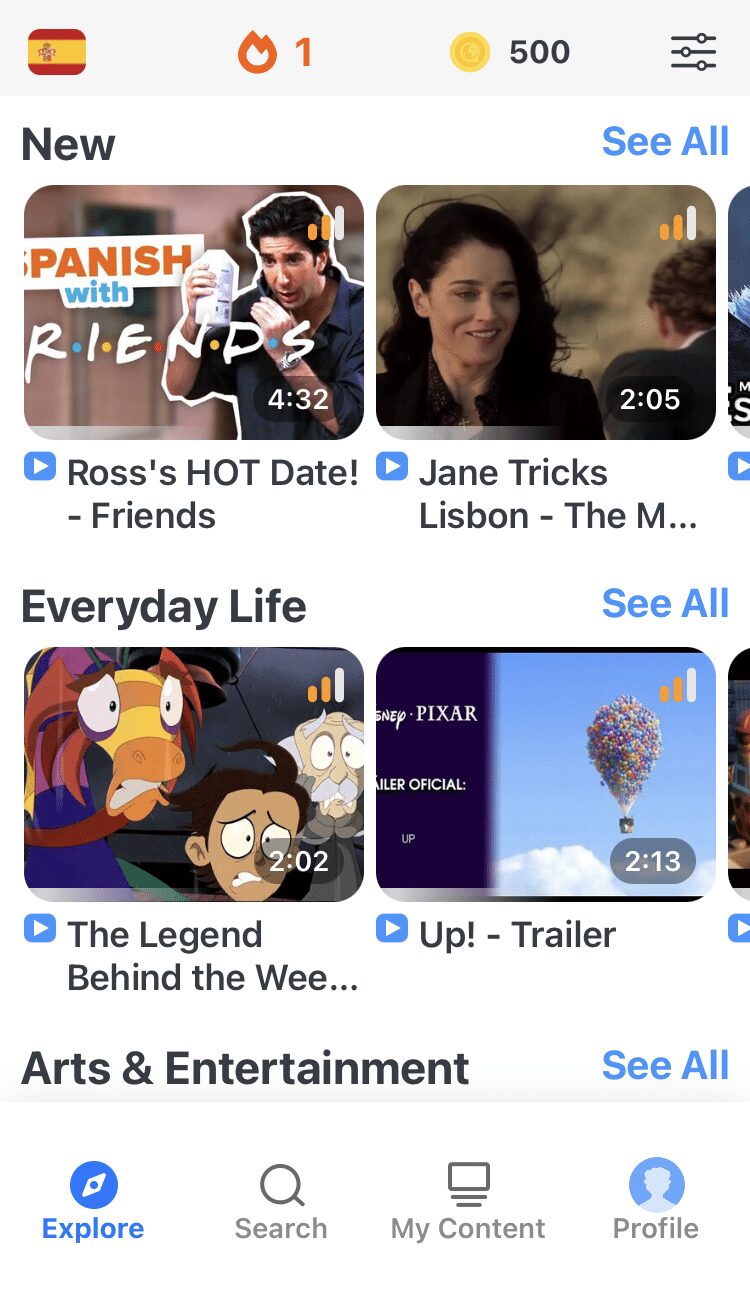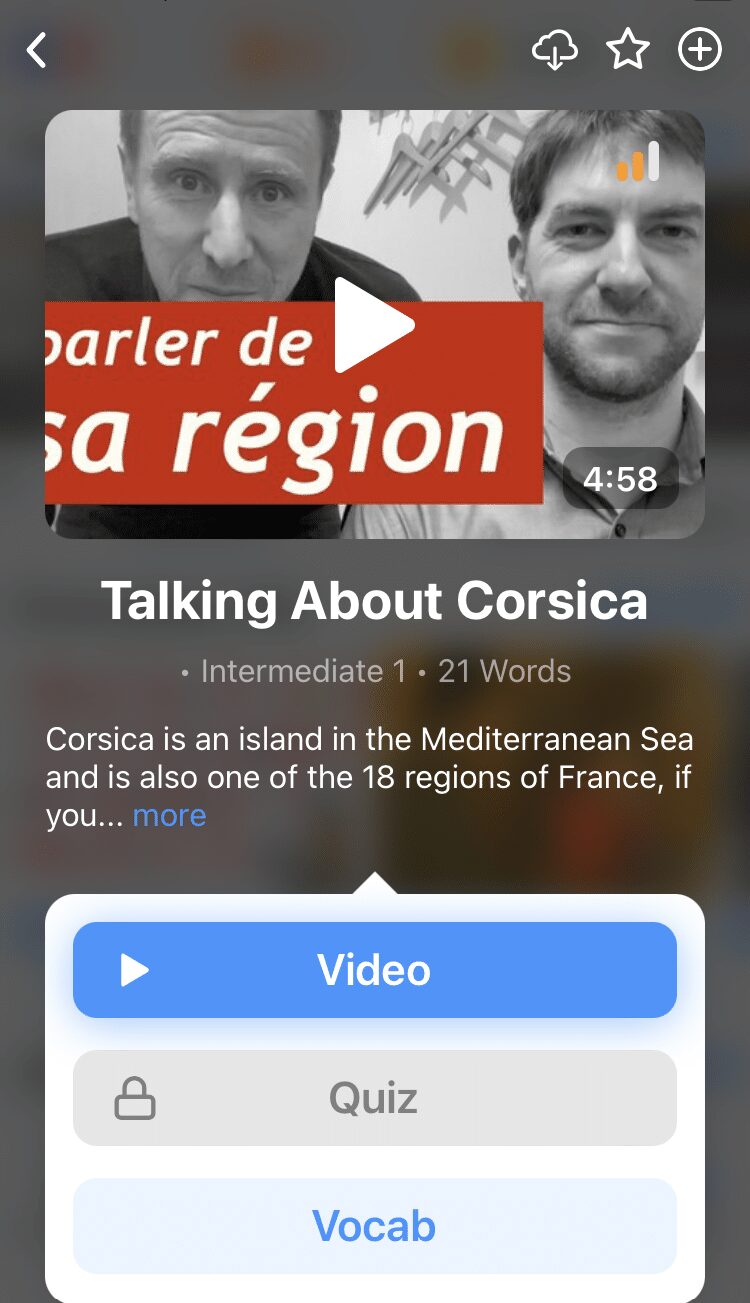How to Learn a Foreign Language by Listening to Radio

Believe it or not, radio is still an incredibly popular form of mass media.
And for good reason: It allows you to multitask amazingly well and it can also have tremendously positive impacts on your language learning.
Find out in this guide how you can learn a new language just by tuning into the radio.
Download: This blog post is available as a convenient and portable PDF that you can take anywhere. Click here to get a copy. (Download)
How to Use Radio to Learn Your Target Language
First, find stations you love
As mentioned above, this has never been easier. If you’re lucky enough to live in a country that speaks your language, then simply crank up the radio in your car, or even buy a small handheld radio. Why do that in the age of the Internet, you may be wondering? Well, not all radio stations have online streams, and if you live in a country in which your target language is spoken, you can have access to all sorts of great local radio!
For the rest of us, there’s still trusty online radio to help out. But where to start?
- TuneIn: This is a general online radio site. The front page will show you local stations, but if those aren’t in your target language, that’s not what we’re after. Instead, click “By Location” at the top of the page, and you’ll see a list of continents. Click through until you find the country you’re interested in, and then browse the radio stations as you see fit. Each station has a brief description of the kind of content it plays, but these aren’t always accurate, so every station’s worth a shot. If you can’t find something you like through this search method, try clicking “Talk” on the front page again. Click through to “World Talk,” where TuneIn has archived streams of talk shows from many of the larger world languages.
- Multilingual Books: This site is mainly a resource for people to buy books and media from other countries. However, like TuneIn, its radio section allows you to search by language for online radio stations. You have to download the streams here, so make sure you have the appropriate software to play each file type!
- Omniglot: Omniglot is a great resource to learn about languages and writing systems in general. Luckily for our purposes, they also have a wonderful section with resources for a huge number of world languages. These include radio stations, so check them out!
- Apps: I recommend checking out radio apps in your target language for iOS or Android. There are plenty of them for most major languages, but they vary widely in quality. Personally, I use Radio Netherlands for Dutch and Radios France for French.
Tune in on a regular basis
Now that you’ve got your radio by the basketful, listen to as much as you can, wherever you can, whenever you can. Whether you’re listening to it in the background or hanging on to every word, listening is important! Try listening to a show or station you like on a regular basis, like whenever you walk to class or drive to work. If you can tie language activities to your daily life, it can help to keep you consistent.
Pick up new words and remember them.
While you’re listening, you’ll end up picking out and reinforcing words you already know. Keep that up! But how do you retain the new words you learn through radio?
As you listen, the speakers will most certainly repeat words over and over. Wait till you hear one that stands out to you. Look it up in a dictionary to make sure you have the meaning right. (This can take a few tries if spelling or writing is tricky in your target language!) Then, enter it into your SRS or whatever you use to store new vocab. For added context and retention, enter one of the example sentences from your dictionary along with the English translation. After that, mosey on back to your radio!
Watch for linguistic ticks, like filler!
What’s filler? Linguistic filler includes words like “um…” and “uh…” They’re placeholder words for when we’re collecting our thoughts or hesitating. However, they often don’t work between languages!
Using English filler in Spanish or Zulu will immediately mark you as a foreign speaker. This isn’t the end of the world, but it’s incredibly easy to fix. Filler words can be hard to come by without listening in on native speakers’ conversations. But with unscripted conversational radio, filler is very easy to pick out, because it’ll be used over and over.
Sometimes filler is more obvious, such as when Spanish speakers say eh and French speakers say euh. Sometimes it’s less obvious: Japanese speakers say あの (ano) and Icelanders say hérna. Either way, just keep listening to unscripted radio, and the filler will become readily apparent, mostly by its frequency alone. So easy!
As you listen, use the variety of content to tackle specific linguistic problems
It’s always good to keep tabs on your weak areas when learning a language, as well as to be aware of your strengths. Maybe you have plenty of native speaker friends, so you’ve got casual conversation down pat, and it’s formal language that trips you up. Or maybe you’re the opposite, and slangy, off-the-cuff conversation sends you running. Radio can help you bring these weak areas up to speed!
News is great for formal language. This can range from a news recap on the hour, to an interview with a leading expert on some topic, to the most formal of speeches given by heads of state. Become a real news junkie, and you’ll see improvement in your formal tone as well as some complex vocabulary. News is unlikely to stray into the realm of informal talk.
For that, you’ll want to listen to interview shows for more informal conversational give-and-take. Call-in shows provide much of the same, with the added benefits of odd accents and terrible phone connections! For an even deeper comprehension of informal language, listen to comedy. Comedy obviously provides jokes (they don’t always translate well!), swear words and crucial cultural references.
Finally, use different accents to exercise your ear
Because radio stations are easy to find and cheap, there’s no reason you should only be able to understand the standard accent of your chosen language. Most popular world languages include a wide variety of accents and dialects. Even if you never want to talk in a particular dialect, listening to different manners of speaking can help you roll with the punches when you come across them in the field.
Some language learning resources, like FluentU’s authentic immersion program, do let you listen to different accents.
FluentU takes authentic videos—like music videos, movie trailers, news and inspiring talks—and turns them into personalized language learning lessons.
You can try FluentU for free for 2 weeks. Check out the website or download the iOS app or Android app.
P.S. Click here to take advantage of our current sale! (Expires at the end of this month.)
While accents from within a certain country can be harder to find (national standard dialects and all that), accents between countries are relatively easy to find in terms of radio stations.
So for example, use TuneIn to compare Canadian French with Haitian French, Spanish from Madrid with Colombian Spanish, Taiwanese Mandarin with Mainland Chinese Mandarin. You get the picture! As an added benefit, after you’ve struggled a while with a strange accent, listening to the standard language will be like a hot knife through butter.
The Importance of Radio for Language Learners
Radio is free and plentiful
So much in this world comes at a cost, and language learning can get expensive. We might fork over whatever it takes for textbooks, programs and classes. Novels, movies and TV shows can come a little cheaper, but not by much if you want a vast second-language library. This isn’t all bad—a lot of these essential resources are worth every penny.
Radio, however, comes free.
You don’t need subscriptions to pay for radio. Whether offline or through online sources, it’s just a matter of finding stations that appeal to you!
On top of that, there’s a multitude of radio stations out there, just waiting to be discovered. Live in a region that doesn’t speak the language? No worries! Online radio’s got you covered.
Are you learning a somewhat rare language? Say, Navajo, Icelandic or Welsh? Well, radio’s going to be your very best friend, because other resources are in short supply for these languages. Even if there isn’t a station dedicated to your particular language, various communities often have local radio shows in a minority language, like Yiddish, for example.
With all this availability, nothing is stopping you from tuning in to your favorite station. Which brings me to…
Radio is convenient
When you’ve got your textbook out for some serious study, that’s where your focus is going to be. When you’re glued to a movie or TV show, guess what? It’s not easy to split your attention.
Radio—either music or talk—is hands-off. All you need is an Internet connection (or, you know, an actual radio).
Unlike a lot of other learning tools, radio is super easy to have on while doing chores like washing dishes or folding clothes. Even if you’re doing something that requires higher attention, like working or studying, you can still benefit! Even with radio in the background, you’ll tune in every now and then and pick out words and sounds. Even with split attention, you’ll get used to the speed at which real speakers talk.
And speaking of convenience, quite a lot of stations are available to you 24 hours a day, as long as you don’t mind listening to late-night call-in shows and some repetitive new stories. If you don’t live in a country in which your target language is spoken, this makes up for regional time differences. No excuse to slack off now!
Radio is full of variety
Compared with other learning tools, radio is chock-full of options. Hand me a bored learner, and I’ll lead them to the nearest radio-emitting machine. Radio reigns as king of variety, primarily because all of the options available come at the low, low price of free.
Now, when I talk about using radio as a learning tool, I mostly mean talk radio because it’s conversational and this makes it unique (unlike music, which you can easily obtain from lots of other sources) and less formulaic (unlike sports).
But even just within the universe of talk radio, there is oh-so-much variety. You have news channels, comedy shows, interview shows, shows on subjects like literature or film (maybe you can even get some good recommendations), documentaries and call-in shows. Besides all that, you can of course still catch up with sports or relax with some music—the options are nearly endless!
Radio is all talk (in a good way)
TV and movies are fantastic resources for learning a language because you get the talk along with mannerisms that are essential to mixing in with a new culture, but there’s still something to be said for talk and talk alone.
With movies and TV, you’ll find yourself picking up words and meaning through situational context, and that’s great! But radio is an exercise in listening with minimal context to really test yourself. You’re forced to figure out meaning by parsing what the speakers are saying based on only their words and tone.
Of course, this isn’t at all like what you’ll encounter in the real world. It’s good and useful to use context, body language and other non-verbal communication to understand others and express yourself!
Nevertheless, listening to the radio is a great exercise for challenging yourself, and stretching your skills now can make TV, movies and real people easier to understand in the end.
Radio is naturally repetitive
As the Romans were fond of saying:
Repetitio est mater studiorum.
(Repetition is the mother of skill.)
And radio’s got repetition in spades.
For one, you’ll hear commercials ad nauseum (get it?), and they tend to be more repetitive than their TV commercial brethren. Why is this desirable? Well, soon you’ll have them memorized word for word. And what good does that do you? Any memorized snippet of language helps you remember vocabulary and grammatical patterns.
Moreover, having a particular word or grammatical pattern attached to an irritating commercial will help it stick in your mind much more easily than if you had simply learned it from a textbook.
Commercials aren’t the only repetition you’ll find, either. Radio shows often have introductions that the speakers will say periodically throughout each show, usually word for word. Longer shows are made to be listened to in the car, and so are written for people who could tune in at any time. Thus, the speakers recap everything multiple times! Like commercials, this is potentially irritating to your casual listener, yes, but gold for a language learner.
The news in general is repetitive by nature. All jokes about the current state of news media aside, the news is a wonderful learning tool. Heard a bit of a news story a while ago, but didn’t quite catch the meaning? No problem! They’ll talk about it again in about an hour. Sometimes, a big news day will come along, and they’ll be talking about the same story for a week. For you, that means the same vocabulary over and over and abundant chances for you to get it right.
And there you have it: all about why and how radio can bring your language skills to the next level.
Now go blast that German/Spanish/Icelandic talk radio!
Download: This blog post is available as a convenient and portable PDF that you can take anywhere. Click here to get a copy. (Download)
And One More Thing...
If you dig the idea of learning on your own time from the comfort of your smart device with real-life authentic language content, you'll love using FluentU.
With FluentU, you'll learn real languages—as they're spoken by native speakers. FluentU has a wide variety of videos as you can see here:
FluentU has interactive captions that let you tap on any word to see an image, definition, audio and useful examples. Now native language content is within reach with interactive transcripts.
Didn't catch something? Go back and listen again. Missed a word? Hover your mouse over the subtitles to instantly view definitions.
You can learn all the vocabulary in any video with FluentU's "learn mode." Swipe left or right to see more examples for the word you’re learning.
And FluentU always keeps track of vocabulary that you’re learning. It gives you extra practice with difficult words—and reminds you when it’s time to review what you’ve learned. You get a truly personalized experience.
Start using the FluentU website on your computer or tablet or, better yet, download the FluentU app from the iTunes or Google Play store. Click here to take advantage of our current sale! (Expires at the end of this month.)










